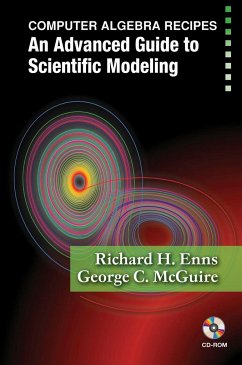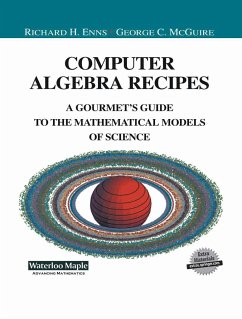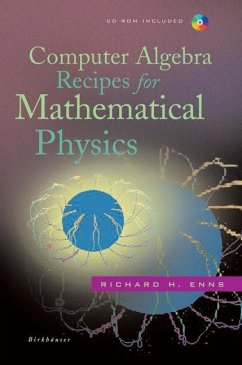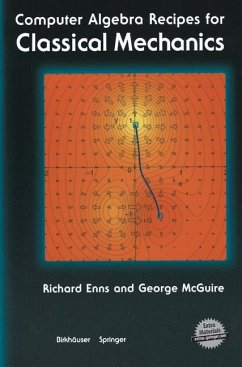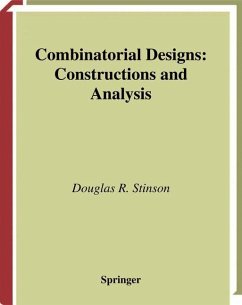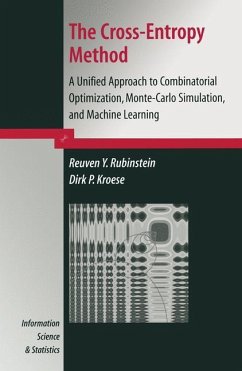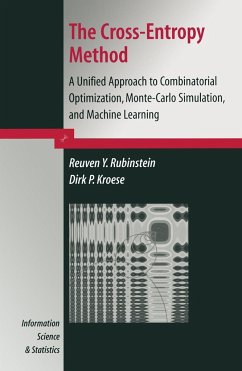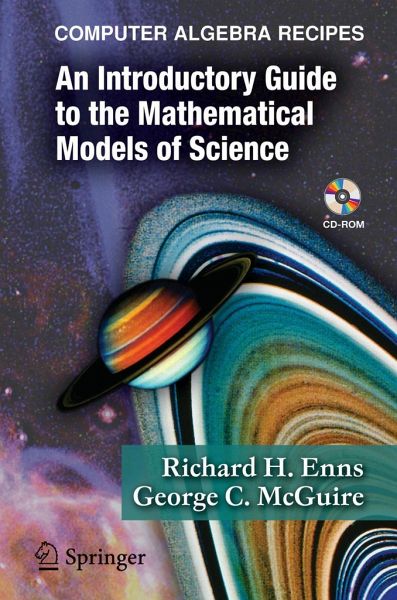
Computer Algebra Recipes
An Introductory Guide to the Mathematical Models of Science
Versandkostenfrei!
Versandfertig in über 4 Wochen
52,99 €
inkl. MwSt.
Weitere Ausgaben:

PAYBACK Punkte
26 °P sammeln!
Computer algebra systems are revolutionizing the teaching, the learning, and the exploration of science. Not only can students and researchers work through mathematical models more efficiently and with fewer errors than with pencil and paper, they can also easily explore, both analytically and numerically, more complex and computationally intensive models.Aimed at science and engineering undergraduates at the sophomore/junior level, this introductory guide to the mathematical models of science is filled with examples from a wide variety of disciplines, including biology, economics, medicine, e...
Computer algebra systems are revolutionizing the teaching, the learning, and the exploration of science. Not only can students and researchers work through mathematical models more efficiently and with fewer errors than with pencil and paper, they can also easily explore, both analytically and numerically, more complex and computationally intensive models.
Aimed at science and engineering undergraduates at the sophomore/junior level, this introductory guide to the mathematical models of science is filled with examples from a wide variety of disciplines, including biology, economics, medicine, engineering, game theory, mathematics, physics, and chemistry. The topics are organized into the Appetizers dealing with graphical aspects, the Entrees concentrating on symbolic computation, and the Desserts illustrating numerical simulation.
The heart of the text is a large number of computer algebra recipes based on the Maple 10 software system. These havebeen designed not only to provide tools for problem solving, but also to stimulate the reader's imagination. Associated with each recipe is a scientific model or method and an interesting or amusing story (accompanied with a thought-provoking quote) that leads the reader through the various steps of the recipe. Each section of recipes is followed by a set of problems that readers can use to check their understanding or to develop the topic further.
This text is the first of two volumes, the advanced guide, aimed at junior/senior/graduate level students, dealing with more advanced differential equation models.
Aimed at science and engineering undergraduates at the sophomore/junior level, this introductory guide to the mathematical models of science is filled with examples from a wide variety of disciplines, including biology, economics, medicine, engineering, game theory, mathematics, physics, and chemistry. The topics are organized into the Appetizers dealing with graphical aspects, the Entrees concentrating on symbolic computation, and the Desserts illustrating numerical simulation.
The heart of the text is a large number of computer algebra recipes based on the Maple 10 software system. These havebeen designed not only to provide tools for problem solving, but also to stimulate the reader's imagination. Associated with each recipe is a scientific model or method and an interesting or amusing story (accompanied with a thought-provoking quote) that leads the reader through the various steps of the recipe. Each section of recipes is followed by a set of problems that readers can use to check their understanding or to develop the topic further.
This text is the first of two volumes, the advanced guide, aimed at junior/senior/graduate level students, dealing with more advanced differential equation models.



